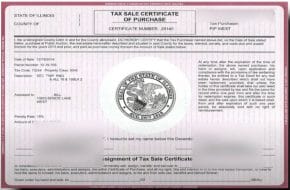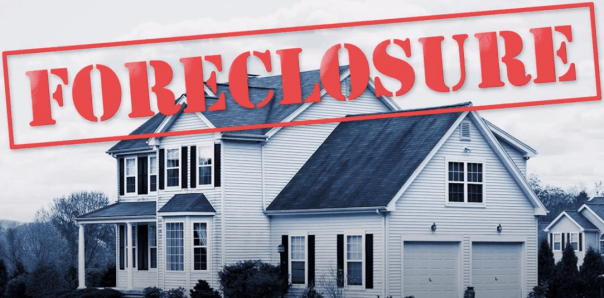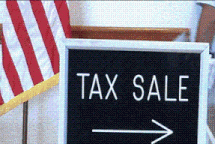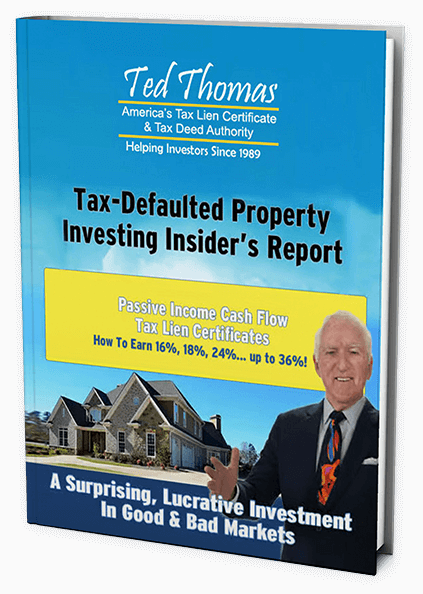A Delinquent Property Tax Sale is a great place to find bargain real estate. Did you know that there are 3 types of delinquent property tax sales? Tax lien, tax deed, and redeemable tax deed. Learn the difference here and discover which type may be best for you.
Table of Contents:
- Understanding the 3 Types of Property Tax Sales
- Tax Lien Auctions
- Tax Deed Auctions
- Redeemable Tax Deed Auctions
- Summary
Understanding the 3 Types of Property Tax Sales
Delinquent property tax sales is an area that’s somewhat confusing to people. I understand why it’s confusing because the rules are different in almost every state. There aren’t too many states where you’ll find that you can just go in and say, “Oh, that’s just like that other state.”
There are three basic ways that counties get rid of property in a tax defaulted auction, which is a generic term to cover any kind of delinquent property tax sale or lien sale held to resolve unpaid taxes.
There they may have a tax lien certificate sale, or in other states a tax deed sale, or a tax deed sale with the right of redemption. I’ll go over those three.
There are variations on the theme, and trust me it can get confusing. However, if you understand these three, everything else is just a variation of it, so you shouldn’t have too much trouble.
Tax Lien Auctions

First of all, a tax lien, not the tax lien certificate, but a tax lien is when somebody hasn’t paid the taxes on a property, and the taxing entity places a lien, an obligation, on the property.
Then that property cannot be sold as an unencumbered property without that lien being resolved.
A tax lien is always first in line. It’s the highest priority lien. The government is the one who does the filing, so they just put it in first. That way they’re guaranteed to get their money before anybody else.
When you buy a tax lien certificate at a delinquent property tax sale, what you’re doing is paying somebody else’s obligation.
You’re lending the government the money to pay those taxes. When you lend the government that money, you get interest.
Tax Lien Certificate Interest Rate
In most states, the way that interest is determined is in a bid down process at auction. That’s not the case in all states.
There are variations on this, but essentially it’s a bid down process where the maximum interest rate that’s allowed in that state is bid down.
For example, in Florida, the interest rate is 18%, and then it’s a bid down from 18 to as low as you’re willing to accept.
When the taxes are paid by the delinquent taxpayer, then you get all your money back plus the interest.
In most states that have tax lien sales, that interest is determined on an annual basis. So it’s prorated by how many months you’ve had the lien.
When you bid and get 18% or whatever percentage you bid, that’s an annual interest rate. So if you’ve have it for two years, you’ll wind up getting 36%. It’s not accrued or compounded; it’s just flat out that interest rate.
Foreclosing on a Tax Lien

The rules are different in different states, but in most states, if that tax lien does not redeem, you can force a foreclosure on it.
In some states, it’s as simple as going to the county and saying, “This is a delinquent tax lien certificate, and I want to foreclose on it,” and you’ll get the property for just what you paid for the back taxes owed, although usually there are some additional fees involved.
You also may potentially have to pay off the other lien holders. So if you’re the first in line and there are two other people who bought tax lien certificates after you, you have to pay them, and then you get the property.
That’s how tax liens work in most states.
Tax Deed Auctions
 A delinquent property tax sale in a tax deed state is different. When you purchase a tax deed, you are explicitly buying a piece of property.
A delinquent property tax sale in a tax deed state is different. When you purchase a tax deed, you are explicitly buying a piece of property.
You go to the auction, and it’s a traditional bid up process, where usually the minimum bid starts at the back taxes and gets bid up to whatever amount anybody’s willing to pay for the property. Then the winning bidder gets the deed.
You pay the county. Usually it’s a county. Sometimes it’s some other government entity, but it’s usually the county.
In some states, you get the deed in a day or two. In others, like Washington State, you have to wait 45 to 60 days, maybe as many as 90.
Once you have that deed, that property is yours, and you can do what you want with it.
Redeemable Tax Deed Auctions
Then there’s the third type, the redeemable tax deed, which is a combination of a tax lien and a tax deed.
Georgia and Texas are two of the primary states that offer tax deeds with a right of redemption.
In this scenario, you’re bidding to buy the property, so it’s like bidding on a deed. It’s a bid up process, and what you get is a tax deed with a right of redemption.
The right of redemption means that the current property owner, who did not yet completely lose the property, has a right to come in and pay whatever you paid to reimburse you, plus a penalty. In Georgia, it’s 20%, and in Texas, it’s 25%.
In Georgia, they have a year to come back before the tax deed buyer can foreclose on the property and go through a legal process to get ownership of the property.
Texas gives them six months, and the penalty is 25%. This makes Texas a pretty attractive area.

Your Responsibilities as a Redeemable Tax Deed Holder
What are your responsibilities when you buy a redeemable tax deed? During the redemption period, are you responsible for the next taxes or whatever happens on that property, or are you only responsible at the time you get the deed?
If something happens on that property, you’re not liable for accidents or anything like that.
As far as taxes are concerned, if they’re not paying their taxes ahead of time for the property, they’re not going to pay the current one. The current taxes are going to be your obligation.
Summary

We hope you enjoyed today’s lesson, “Delinquent Property Tax Sale.”
There are three main types of delinquent property tax sales. Once you understand these, you can understand any variation.
The first type is the tax lien certificate sale. In the case of tax liens, you don’t get immediate possession of the property. In 95% to 97% of the cases, you get all your money back plus interest, making tax liens an excellent passive investment.
The interest rate on tax lien certificates varies depending on the state and your bid. For example, in Florida, the interest rate is 18%. The bidding at the tax lien auction in Florida begins at 18%, and the rate is bid down.
The next type of delinquent property tax sale is the tax deed sale.
With tax deeds, you pay whatever you’re willing to pay, and you get the property right away. It becomes yours, although sometimes you don’t get the deed right away because of delays in processing.
Great bargains can be found at tax deed sales where it’s possible to purchase a property for 10, 20, or 30 cents on the dollar, and get it without a mortgage.
The third type of delinquent property tax sale is for a redeemable tax deed, which is a tax deed with a right of redemption.
You get the property after the right of redemption expires, and the redemption period varies depending on the state.
Until the redemption period expires, the property owner has the right to redeem the deed by paying you all the back taxes plus a penalty. In Georgia, the penalty is 20%, and in Texas, it’s 25%.
If you’d like to know more about tax lien certificates, tax deeds and redeemable deeds, there’s no one more qualified than Ted Thomas, America’s leading authority on tax lien certificates and tax defaulted property investing, to teach you.
Ted is the only one who provides full support and complete training with home study courses, Q&A webinars, live tutorials, workshops & web classes, and personal one-on-one coaching.
If you’d like to learn how to earn lucrative profits in tax delinquent real estate, you can get started today at no cost by taking advantage of this FREE Gift from Ted.

Ted Thomas is America’s Leading Authority on Tax Lien Certificates and Tax Deed Auctions, as well as a publisher and author of more than 30 books. His guidebooks on Real Estate have sold in four corners of the world. He has been teaching people just like you for over 30 years how to buy houses in good neighborhoods for pennies on the dollar. He teaches how to create wealth with minimum risk and easy-to-learn methods.




